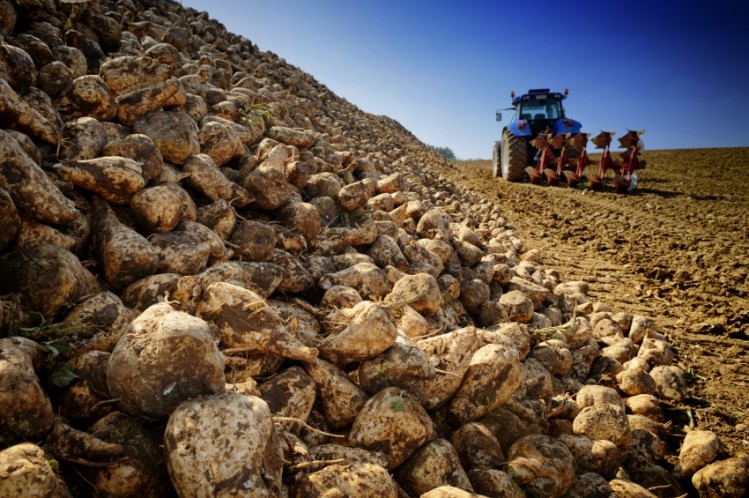Will an end to sugar quotas undermine a sugar tax?

Research published in October 2015 in the British Medical Journal (BMJ) was the first to highlight the potentially bittersweet fallout from the EU’s sugar quota reforms. “The structuring and sequencing of the reforms in 2006 and 2013 indicates that they were designed to benefit industry rather than public health,” the researchers noted. “There has been no pause to consider the broader health implications of sugar reform, even though from the outset the European Commission forecasted that sugar consumption would increase as a result.”
Less than six months later, in March 2016, the UK announced a tax on sugar-sweetened drinks. Health campaigners welcomed the announcement, but some have begun to raise more serious concerns that the end of sugar quotas (from October this year) could soften the blow from the new levy (set to start in April 2018).
“There is a concern this could make certain types of sugar cheaper, and thus provide a disincentive for manufacturers to reformulate to reduce sugar content,” one campaigner said. “It won't necessarily undermine the sugary drinks tax as there are more factors in play than simply price, but it could be an unhelpful factor.”
Others have been more bullish. “Ever cheaper sugar in the midst of an obesity epidemic,” noted Professor Jack Winkler in an article for FoodNavigator in September. “These price cuts are much larger than the proposed tax, or any politically conceivable tax.” Tam Fry, from the UK’s National Obesity Forum, also suggested the two policies were in direct conflict – one that will trigger increased production of an ingredient that the other has been designed to reduce consumption of.
Gung-ho for no quotas
In an interview with FoodNavigator, Fry explained how “Europe’s health ministers didn’t get the better of the agriculture ministers [and the latter] don’t give a damn about health”. The UK’s Department for Environment, Food and Rural Affairs is also “going gung-ho” for the new sugar regime, he said, given that it will boost the home market as well as exports. “We have to sit on sugar [production] immediately before this takes effect,” Fry added.
Fry said forecasts by Stratégie Grains this week further justified the concerns health campaigners have raised. The French market research firm projected that EU white sugar production will climb 31% from 2016 to 2021. The company’s oilseed and sugar market analyst Madeleine Breguettold ConfectioneryNews that the increase in sugar beet production will create “very strong competition on the supply side, so that’s good news for all the sugar users”.
But is it equally bad news for public health? The fears of campaigners are “legitimate but somewhat exaggerated”, Breguet noted in an email to Foodnavigator. “The large EU exportable surpluses expected after 2017 should have no problem finding buyers on the world market,” she explained. “The European sugar price will need to gradually converge with the world market price in order for its sugar exports to be competitive. As we do not project world prices to decrease dramatically after 2017, we do not forecast a drop in EU prices.”
No guarantee prices will fall
If the current trend of a strong dollar against the Euro continues, it will also support EU sugar prices in euro, she added. But there are caveats, as always, to the forecasts: “From a macroeconomic perspective, several swing factors could also challenge our assumptions,” Breguet added.
Ruud Schers is an analyst at Rabobank. In his update on the sugar market in October, he suggested that sugar buyers “licking their lips” after what happened to milk prices when the quotas were removed could well be left disappointed. “… the scheduled demise of the sugar production quotas … does not necessarily guarantee a low sugar price,” he wrote.
Like Breguet at Stratégie Grains, Schers suggested that the campaigners might be putting two and two together and coming up with five. “Just saying that supply will be abundant and prices in the bloc will be low is a bit too optimistic,” he explained this week. “It is good to bear in mind that the number of factors influencing the EU price post October 2017 is almost double the number of factors today – and with current global market prices at least one factor will point in the opposite direction.”
The global sugar price, exchange rates (Euro to dollar), domestic supply in the bloc and the competition between EU sugar producers are all factors that will become far more important for determining price in the post-quota era. Brexit will also be a factor. What the UK-EU trade deal might look like remains unclear, but the analysts noted the UK is currently a “sugar deficit country” and will therefore rely on imports (both raw for refining and whites).
“The question is where the imports will come from [the EU versus elsewhere],” Schers explained. “Therefore the exposure to the global market (and global macro economics) will be a factor of growing importance once the UK leaves the EU.”
There is another unknown at play, too. Pablo Monsivais, one of the authors of the BMJ paper in 2015, explained that: “Falling commodity prices will lower costs for the processed food and drink industry, which might make them more inclined to pass on less of the levy on to retailers. That’s the big unknown with this levy: the degree to which it will pass through to the consumer.”




